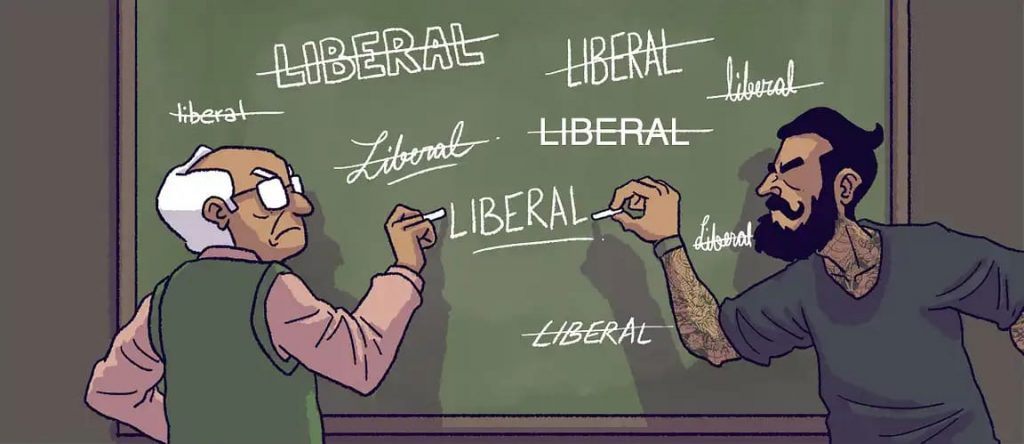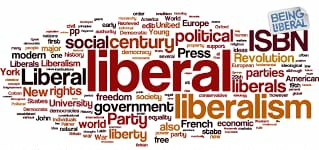Reclaiming the Liberal Space
Geogi Eapen Zachariah (1990 ME)
The conversation in the public place that defined the times that we live in, was the one initiated by the right wing leadership in India about ‘Pseudo Secularism’ in the late eighties and early nineties. The conversation about the hollowness of secularism, though came from the right wing leadership, had potent signs to the weakening of the space occupied by the truly secular and truly liberal space. But the impending danger that was hidden in that conversation was not taken seriously and corrections were not made as the claimants of the truly secular and liberal space were in clichéd way of denial and more immersed in the Power Games. There was not even a whisper of the need for a conversation for reimagining and establishing what this truly ‘secular’ and ‘liberal’ space meant. While the conversation space got surrendered, an equally intense shift was taking place on the ground.
The emergence of the rightist leadership to dictate terms and influence the common sense (senso comune) of the society has adversely affected the secular and liberal space. With carefully planned communal propaganda, they have been highly effective in sowing seeds of doubt in the minds of a particular section of the majority community. This has even turned their minds to be receptive to certain kind of news and analysis only. Therefore, the reversal of this is not limited to correcting the individual, but so vast to re-establishing the visibility of the liberal and left narrative in the society.

While taking up this task, two critical points from the earlier two articles on the subject could become the base for moulding this new emprise. One is the first article, where it summarise to indicating the role that small communities can critically play as the resistance movement. The second is the understanding of the emergence of groups who lead a life that is isolated from the class realities, which intensified with the emergence of the “millennials”.
Shrinking of the Left
In the Indian context, we need to look at few more factors to understand the political and social times that we live in. One of the factors, which could be evaluated as the critical factor is the shortcomings of the liberal thinking leadership as a group involved in purely intellectual conversation of the issues, bereft of any direct engagement with the human beings who they pose to represent. We can call them class conscious, but they fail to maintain an umbilical connection with the socially underprivileged, or people who live in the periphery of the society.
It will be worthwhile to critically examine whether these ideas have become more of a fashionable statement to make, rather than having a genuine interest and effort to understand these realities and redefine these ideas to suit the changing times. Thus a major section of the liberal left therefore lack credibility. This coupled with the right-wing onslaught, they themselves got marginalized. They no longer hold a space called liberal and secular, though they continue to espouse it as an idea.
There comes the second point that one need look at in the Indian context, hijacking of the liberal space by Islamic fundamentalist world view. Without understanding this element properly, and disengaging from this element, the true space of a liberal cannot be reinvented and recreated. We will be doing more of the same thing with no different results if we are pursuing the path without comprehending this element completely.
Decades back, there was a genuine humanitarian crisis for Islam as a community across the globe. They were in the peripherals and they were underprivileged. But in the late seventies and early eighties, with Mujahedins being trained in Afghanistan to counter the soviet influence, Islamic fundamentalists developed a new equation or a strategy to expand their world view by using the position of being in their peripherals and being underprivileged, to their advantage. That is very different in nature to the genuineness of being in the peripherals and being in the position of underprivileged. The fundamentalists do not represent the common man of the Islamic society. Liberals, failing to differentiate this, started responding in a fashionable manner, thus gave legitimacy to the Islamic fundamentalist world view. This helped them act as the agency of the whole diaspora and they started using this position to expanding their geographical limits. That took demonstrable expressions in all liberal and secular societies like many European countries and to a great extend in India too. Victim mentality and planned migration developed as two key strategies for the expansionist agenda of this worldview and liberal space was exploited by them over a period of time.
Right-wing Rhetoric
Liberal space, which was otherwise occupied by genuine human approach with no other agenda started being perceived as one, whose liberalism is limited to when it comes to identifying with one group of people and the right-wing wolves across the world took advantage of this and succeeded in rallying the majority communities, thus saw the emergence of governments with quasi autocratic qualities.
It is critical to use the word ‘credible’. Credibility comes from being absolutely objective about the way the space is defined, the thought process and the manner it is put into action. That needs a redefinition of a community based approach for defining the people living in peripherals, irrespective of whether they belong to minority or majority community. For example, the absolute silence of liberals regarding the ethnic attack of people belonging to one specific community in Jammu area may have made them to be perceived as lopsided in their approach. Such lack of response would have given rise to an insecurity among the majority community, which came into a perception that the liberals no longer represent the neutral position and therefore they have to stitch together a counter platform to address such issues. This thought process was cleverly exploited by the right-wing, branding the liberals and centrists as ‘pseudo-seculars’ and this resulted in the emergence of majoritarian regimes across the globe.
Coupled with these changes, media which played the role of a vehicle for causing changes in the society slowly abandoned all such positions and moved to just a profit making proposition. It thus got redefined as media of entertainment and lost its social significance. This needs to be understood thoroughly well for us to be realistic in our expectation from mainstream media. At the same time, huge opportunities came up through social media space, whose potential to create the new momentum has not been truly exploited yet. The protest against citizenship bill probably is the first such attempt where a mass movement on ground is being used by social and online media to further and strengthen a collaborative way of resistance.

Importance of Small Communities
So, where do we take this movement forward? The first point is the role that communities like Darsana can play. The future belongs to communities like this. The future of emerging movements of resistance will come from these communities. Thomas L Friedman, in his book “Thank you for being late” talks about the emergence of such small groups that can influence the societies and communities at large. This fits in perfectly with today’s context. Small groups intensely bonded together and credibly occupying the space of being liberal and secular can form the starting point for the next wave of recapturing, emergence and recreating a new space for liberal thought process.
These small communities can then influence the millennials around them in their thought process and bringing them to be more sensitive to the underprivileged and marginalised. Millennials need behavioural change and that can only happen by treating them as a part of these communities and not be excluding them. These communities also have the power to bringing back the class neutralised individuals back into the real issues.
‘Minimum Common Areas of Agreement’
Once the community is formed and the it started occupying the credible space of being liberal and secular in its nature, then it can slowly push the emergence of the new way of resistance. Collaboration is the last word for scaling up these movements. Often, these movements traditionally have shrunk itself to smaller spaces completely losing its ability to engage with similar thinking people. The new movement should have the agility to network and collaborate upon the ‘minimum common areas of agreement’ instead of searching for the traditional way of looking ‘minimum common areas of disagreement’.
So the new way of resistance needs small groups coming together, which are beyond the traditional class definition, beyond gender definition, beyond economic definition and beyond any kind of categorical compartmentalisation. Any voice that is truly liberal and secular needs to be identified and brought together to build the new form of resistance, fortunately we have already started seeing that kind of voices emerging. This is a golden time to recapture the lost credible space of these two sustainable ideas.
Recreation, Reimagining and Reinventing that space looks tough and time consuming. But there is no other way forward. Initiatives like this can enable us to give that much needed push to next wave of emergence of new space for liberal and secular ideas right in time when the wave of majoritarianism is on it ebb.













